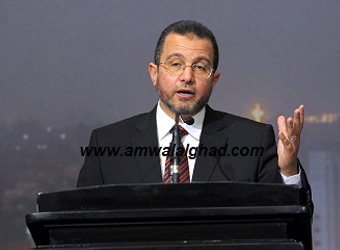Egypt’s Cabinet on Wednesday unveiled its economic reform program, upon which a proposed $4.8 billion loan from the IMF was conditional, according to Al-Ahram’s Arabic-language news website, which obtained a copy of the program.
In terms of fiscal reform, the new program aims to reduce the budget deficit to 10.4 per cent for the current fiscal year, down from 11 per cent for the 2011/12 fiscal year. According to the programme, the budget deficit should be brought down to less than 5 per cent by the 2016/17 fiscal year.
The fiscal reform program also calls for curbing expenditures.
The government has already taken several steps to restructure Egypt’s fuel subsidies system. These include slashing subsidies for heavy-energy industries, distributing butane canisters through a coupon system, and cutting subsidies on high-grade octane-95 gasoline.
In the 2012/13 budget, the government announced plans to reduce total energy subsidies to EGP70 billion. Many experts, however, believe this is overly optimistic.
Last year, subsidies were set at EGP95 billion of the state budget, but are thought to have actually reached some EGP115 billion.
The new fiscal program also aims to raise the state’s financial resources to support social and economic goals by establishing progressive tax rates, revising sales taxes, setting a capital gains tax (CGT) and imposing additional taxes on cigarettes and beverages.
Earlier this month, the government of Prime Minister Hisham Kandil approved implementation of a CGT on profits realized on the stock exchange. The move represents the first time for Egypt to impose such a tax since it reinstated its stock exchange in 1992 after a three-decade hiatus.
Kandil also revealed that the cabinet had approved two new tax brackets to be applied to high-income individuals. A 22 per cent tax will be levied on individuals with annual incomes between EGP1 million and EGP10 million, while annual incomes higher than EGP10 million will be taxed at a rate of 25 per cent.
Consecutive post-revolution governments had ignored calls for progressive taxation, a longstanding demand by many leftist and revolutionary groups in Egypt.
Egypt’s corporate tax rates were amended in mid-2011, when the tax rate on incomes higher than EGP10 million was raised from 20 to 25 per cent.
The new personal-income tax structure will be as follows:
First segment (EGP5,000–EGP20,000): 10 per cent
Second segment (EGP20,000–EGP40,000): 15 per cent
Third segment (EGP40,000–EGP1 million): 20 per cent
Fourth segment (EGP1 million–EGP10 million): 22 per cent
Fifth segment (EGP10 million and up): 25 per cent
Many economy experts say the new tax bracket will not boost national revenue, but will mitigate calls for social justice in Egypt through progressive taxation.
Thirdly, the economic program calls for the Central Bank of Egypt to continue maintaining the currency exchange rate in hopes of reducing inflation over the medium term.
Last week, Egypt reached a staff-level agreement with an IMF technical team for a $4.8 billion loan.



